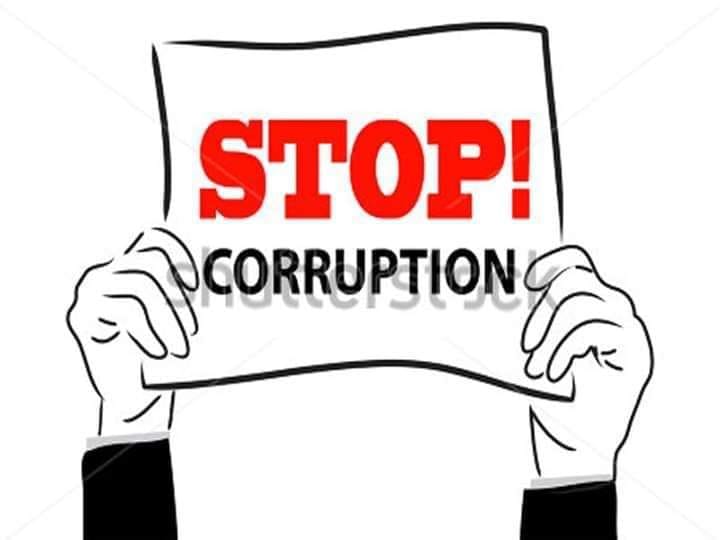NASIR ALI
Srinagar: The role of an Anti-Corruption Bureau in society cannot be overstated, particularly in regions like Kashmir where corruption can be prevalent. Corruption undermines the rule of law, erodes trust in institutions, and diverts resources away from essential services and infrastructure development. In such contexts, an active and efficient Anti-Corruption Department plays a crucial role in combating corruption and holding corrupt officials accountable.
In Kashmir, as in many other regions, corruption can manifest in various forms, including bribery, embezzlement, nepotism, and favoritism. These corrupt practices not only hinder the socio-economic development of the region but also perpetuate inequality and injustice. However, the presence of an active Anti-Corruption Department provides hope for combating such practices and fostering a more transparent and accountable governance system.
The primary responsibility of the Anti-Corruption Department is to investigate allegations of corruption, gather evidence, and prosecute individuals involved in corrupt activities. One of the most significant challenges in fighting corruption is the reluctance of witnesses to come forward due to fear of reprisal or intimidation. However, the Anti-Corruption Department often relies on tip-offs from concerned citizens to initiate investigations.
HISTORY & ORGANIZATIONAL STRUCTURE
The offences of corruption and bribery against Government Employees were initially covered only under the provisions of Ranbir Penal Code, 1989 Bikrami (1932 A.D). Up to 1949 A.D. cases in this behalf were registered and investigated by Local Police.
After the enactment of J&K Prevention of Corruption Act, 2006 Bikrami (1949 AD), a separate wing called “Anti-Corruption Wing” was formed in the State Crime Branch for conducting the investigation of cases covered under Prevention of Corruption Act. However, in 1962 a separate organization, called “Anti-Corruption Organization” was created to investigate all cases relating to bribery and corruption.
With the passage of time, various Acts were enacted to deal effectively with the menace of corruption. Most important among those enactments were, Prevention of Corruption Laws (amendment) Act, 1983 A.D. by virtue of which the “Anti-Corruption Organization” was renamed as “State Vigilance Organization”, and J&K Public Men and Public Servants Declaration of Assets and Other Provisions Act, 1983 A.D.
By virtue of this Act, the elected representatives of various public bodies, MLAs and Ministers were brought under the purview of Corruption Laws and filing of Annual Property Returns was made mandatory for all public servants and public men. Failure to do so was made an offence under P.C. Act, 2006 Bikrami (1949 A.D.).
To streamline the investigations, two Police Stations were set up, one at Jammu and another at Srinagar vide SRO 229 of 1976 dated 23.4.1976. These Police Stations take cognizance of offences under P.C. Act, 2006 Bikrami (1949 A.D.).
When a tip-off regarding corrupt officials is received, the Anti-Corruption Bureau initiates a thorough investigation to gather evidence and build a case against the accused individuals. This process may involve surveillance, undercover operations, forensic analysis, and interrogation of suspects and witnesses. The department works diligently to ensure that the investigation is conducted impartially and that due process is followed at every stage.
Once sufficient evidence is gathered, the Anti-Corruption Department works closely with the judicial system to prosecute the accused individuals. This may involve filing charges, presenting evidence in court, and advocating for the imposition of appropriate penalties. By holding corrupt officials accountable for their actions, the department sends a strong message that corruption will not be tolerated and that those who engage in corrupt practices will face consequences.
It is essential to recognize that combating corruption is not a one-time effort but rather an ongoing process that requires sustained commitment and vigilance. The Anti-Corruption Department in Kashmir must remain vigilant and proactive in its efforts to root out corruption and uphold the principles of integrity, transparency, and accountability.
The role of the Anti-Corruption Department in Kashmir is indispensable in the fight against corruption. By investigating allegations of corruption, prosecuting offenders, and promoting transparency and accountability, the department contributes to the broader goal of building a more just, equitable, and prosperous society. However, addressing corruption requires a collective effort involving government institutions, civil society organizations, the private sector, and ordinary citizens. Only through sustained collaboration and commitment can we hope to overcome the scourge of corruption and create a better future for all.



